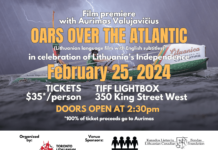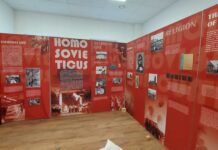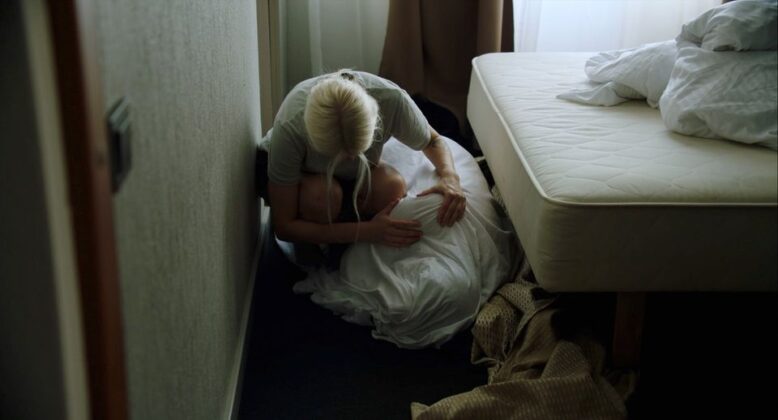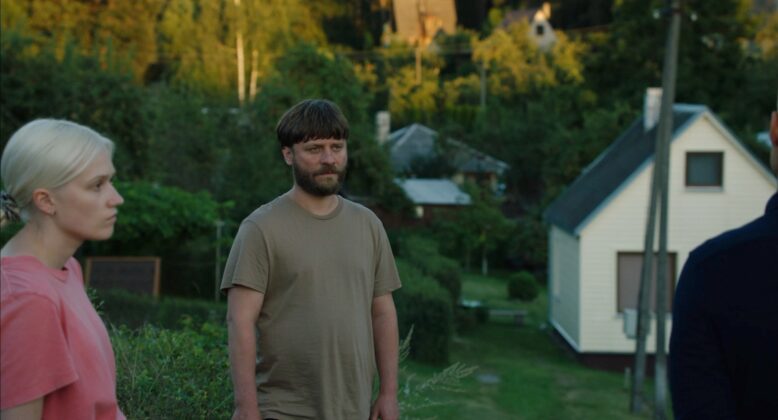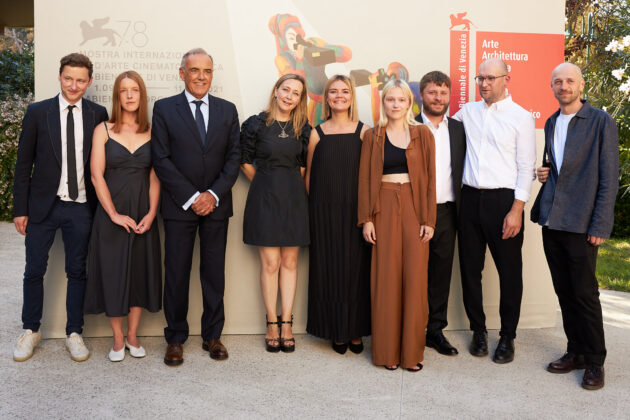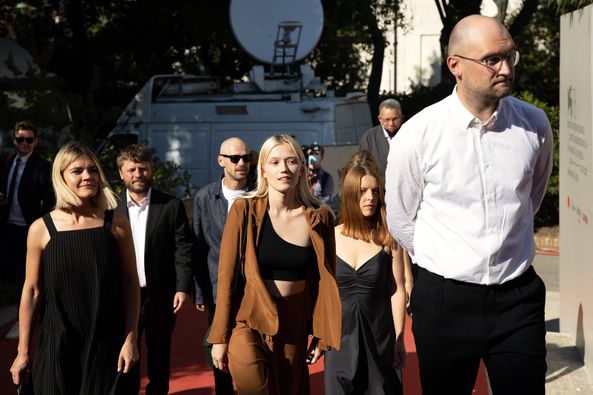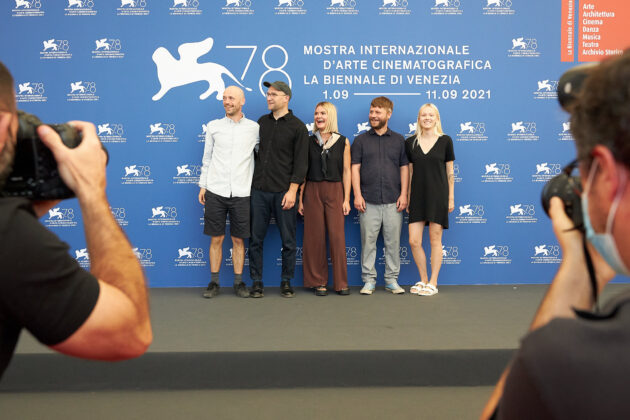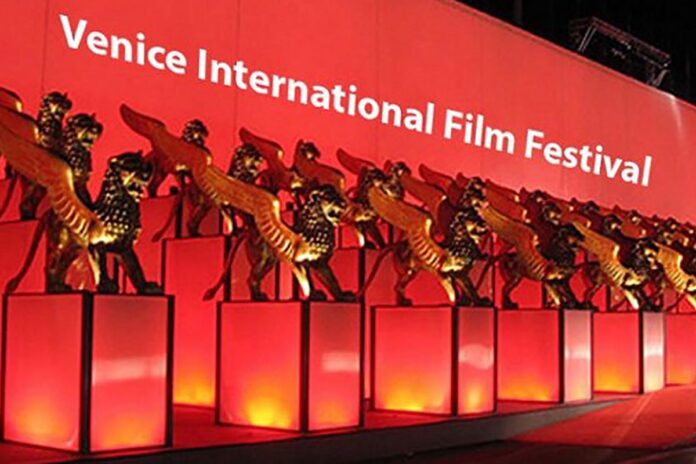
The Venice International Film Festival is the world’s oldest film festival, initiated in 1932 and held annually at the end of August or early in September on Lido Island near Venice, Italy. The festival is part of a wider event – La Biennale di Venezia, which ranks among the top film festivals such as those held in Berlin and Cannes.
This year, the famed event took place from September 1 to 11 and included three Lithuanian or Lithuanian-collaborated films.
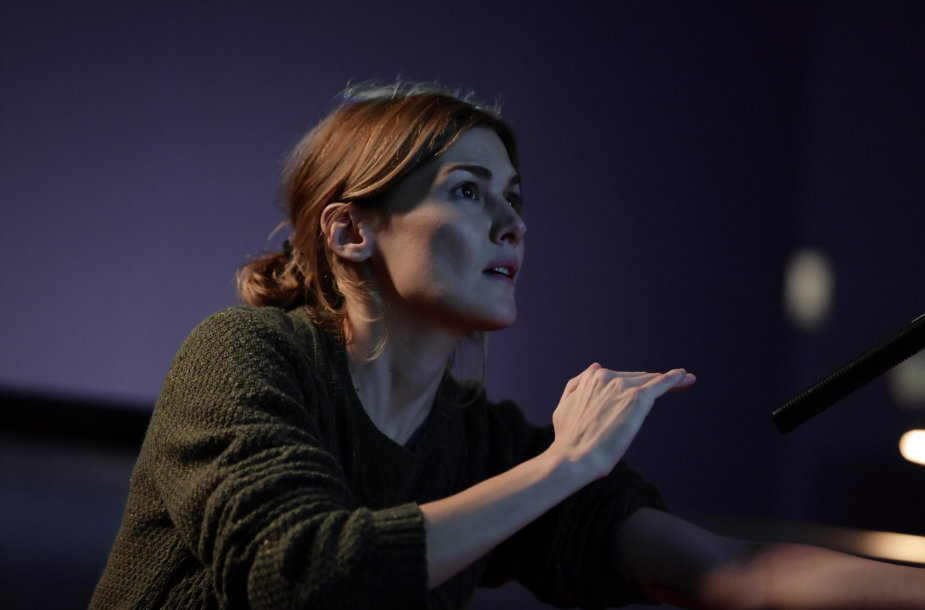
The film Three (“Tres”), a joint Spanish, French and Lithuanian production (director Juanjo Giménez) was presented on September 5, co-produced by Marija Razgutė, with music by Domas Strupinskas. Director Giménez; work was recognized in the press as one of the most unusual in concept. Lithuanian co-producer Razgutė was excited to be part of the project, which she said pushes the envelope of cinematic concept, emphasizing the importance of sound. The film is about C, a talented sound designer, passionate about her work. After delivering a few sound mixes with clear defects of synchronization, her employers believe that she is going through a phase of psychological instability, and that they cannot trust her with new projects. She will then realize that, just like a film with a faulty soundtrack, her brain is processing sound later than images. As the time lapse extends, day after day, she will face hardships, be forced to give up her job and reconsider her whole life.
On September 8, Piligrimai (Pilgrims), a 92-minute film in Lithuanian by director Laurynas Bareiša was presented in the competition “Orizzonti” (Horizons). Bareiša spoke about the inspiration for this film: My wife and I are both filmmakers. One of our pastimes is to go walking in forests outside Vilnius and collect notes about interesting locations for future projects. A small road we came upon one day four years ago recalled the newspaper report of a car that had been burned with a girl in the trunk. I had followed the story closely and made a short film about it. Even as I knew we were not on the actual scene of the crime, tears came to my eyes as I imagined what it would be like for someone close to the victim to be standing in the exact spot where the tragedy took place. My wife couldn’t understand why I was upset, but I decided to build a story around that feeling.
The cast included Gabija Bargailaite, Giedrius Kiela, Paulius Markevičius, Indrė Patkauskaitė, Jolanta Dapkūnaitė, and Ieva Andrejevaitė. Indre and Paulius haven’t kept in touch lately; but as his foot is in a cast, she agrees to drive him out to a small town near the airport, where his brother and her boyfriend died. That evening they survey the air terminal where Matas arrived on a late flight. They go into a restaurant to ask for Ieva, who no longer works there. Paulius retraces Matas’ steps through the restaurant to a table where he and Vytenis got into an argument. Next morning an old lady shows them around a big family house for sale but refuses to follow them into the cellar, where they try to line up how the forensic photos on Paulius’ phone were taken. As they emerge, the old lady’s grandson, Jurgis, recognizes them. She kicks them out; but not before Paulius breaks the wing mirror off her car. Martynas arrives to sell a silver grey Audi. Paulius agrees to buy it only after he finds out what it is like to be locked in the trunk, as his brother had been. When they find Ieva working in a furniture store, Paulius demands to know why she did not call the police. The police arrive to arrest him for damaging the old lady’s car. Ieva tells Indre she witnessed what seemed to be only a typical bar fight. At the end, Indre and Paulius must decide whether they should have made the trip and what it may have changed.
A contender in the Orizzonti Short Films Competition on September 10 was Techno, mama by director Saulius Baradinskas, with cast comprised of Motjejus Aškelovičius, Neringa Varnelytė, Kasparas Varanavičius, Urtė Strolaitė, Algirdas Galkus. Techno, Mama is a film about teenager, Nikita, who tries to pursue his “Techno” dream, but the real “Techno”’ in his life is his mother. Nikita loves to listen techno music and dreams of going to Berlin and visit the famous club Berghain. His mother Irena doesn’t know about her son’s dreams and soon enough their mutual expectations will clash. It is an essay about two Lithuanian generations that didn’t find a way to love each other. It is a story about kids, who didn’t have a childhood because their dreams were lost in post-soviet urban yards.
Information about the festival is available at labiennale.org.
News from Alkas.lt and labiennale.org







